Trigger warning: This story contains information and descriptions related to violence against women and children, including sexual violence, self-harm and suicide.
Sudan, in Africa’s northeast, is a nation in the depths of a relentless conflict, faces the world’s largest humanitarian crisis with millions of children and their families are on the brink of survival.
Since the conflict escalated in April 2023, the number of children in need of humanitarian support has more than doubled from 7.2 million at the start of 2023 to over 15 million today.
For two long years, Sudan's children have been deprived of their rights and their childhood, forced to endure unimaginable suffering – displacement, abductions, violence, sexual assault, as well as a dire lack of essentials like food, water, and health care.
As the conflict enters its third year, children and their families speak out about the devastating toll the brutal war continues to have on their lives.
A father’s story of loss and hope
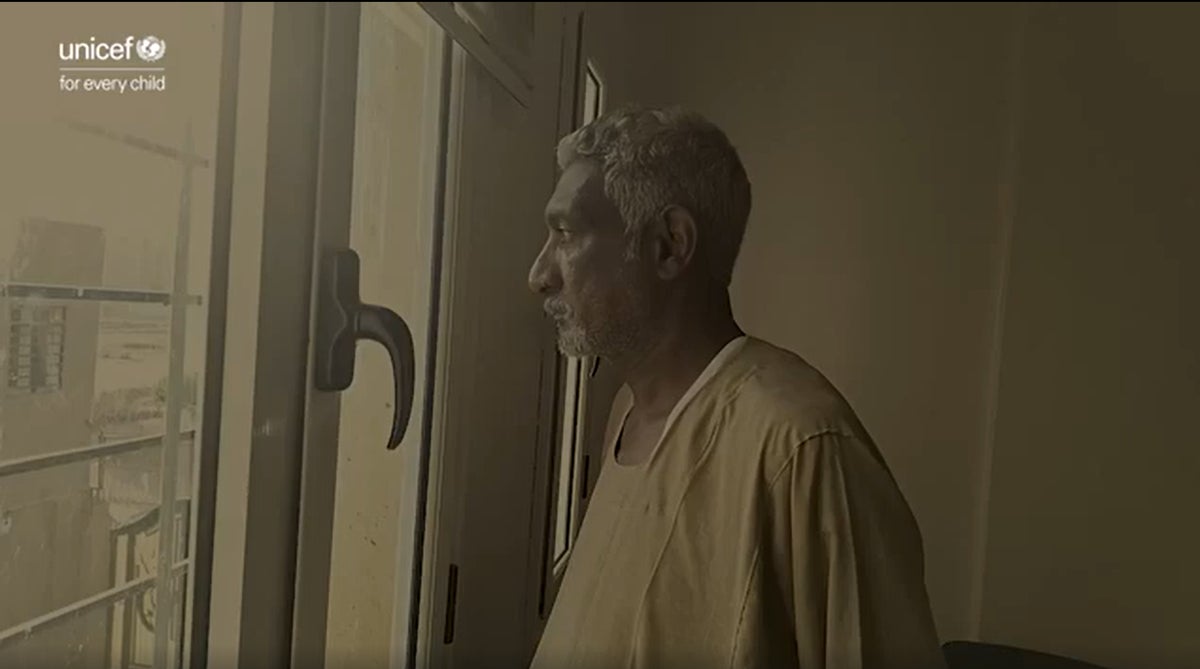
A father's love
"My daughter fled when the bombing happened. She ran with her aunt, everyone was fleeing. To this day, I still don't know where she is... it's been a year and three months that I've been searching for her.""
When violence came to their village, Mortada witnessed the death of his eldest son. Now, as he grapples with his grief, he tirelessly searches for his daughter, who fled during the chaos of the attacks.
A young girl silenced by fear
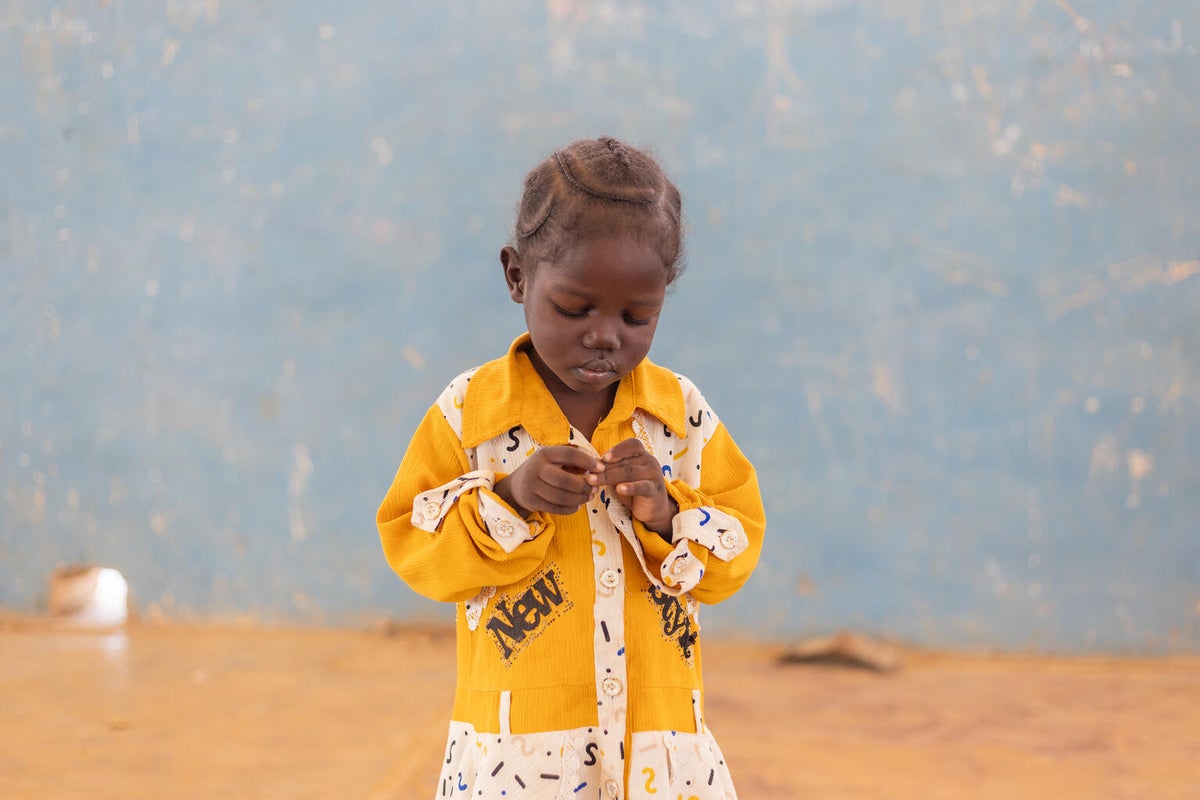
At just four years old, Walaa has already been displaced three times, travelling across four states since the war in Sudan began. Walaa’s family has endured a gruelling 1,500-kilometre journey in search of peace and safety. Along the way, they faced intense bombardments, days of walking, nights spent on streets, and even weeks hiding in a forest – experiences that have deeply traumatised young Walaa.
"Before the war, my daughter was healthy, talking and playing. But since the war started, she has fallen into a state of silence. She enters a state of silence, and her entire body becomes cold."
Now, at their camp for internally displaced people (IDP), Walaa attends a UNICEF-supported child-friendly space with her mother, where they receive care and support from a mental health specialist.
A mother’s battle to nourish her family
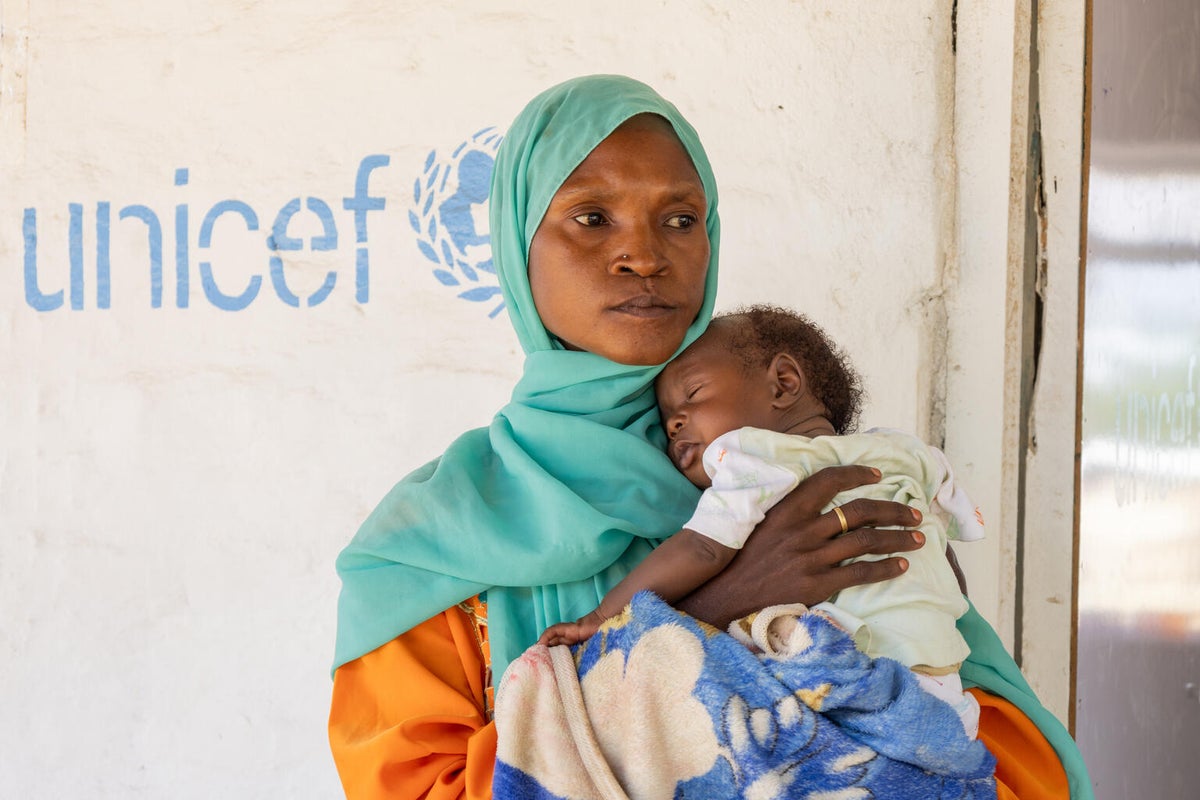
Since the conflict intensified, daily meals for many children and their families consist of insufficient and non-nutritious food – when food is available at all.
Qabil, seven months pregnant at the time, fled with her four children when the violence erupted in Khartoum. A former teacher, Qabil could no longer work, earn a living, or provide for her family. Her husband’s unemployment compounded their struggles, and they were forced to sell their furniture to afford their escape to safety.
Heavily pregnant and tired, Qabil endured the long, gruelling journey. Irregular meals and harsh conditions severely impacted her health. “We mostly survived on water and bread,” Qabil recalled. “Sometimes there was food, and other times there wasn’t.”
Since being diagnosed with severe malnutrition, Qabil is receiving care and treatment at a UNICEF-supported health care facility.
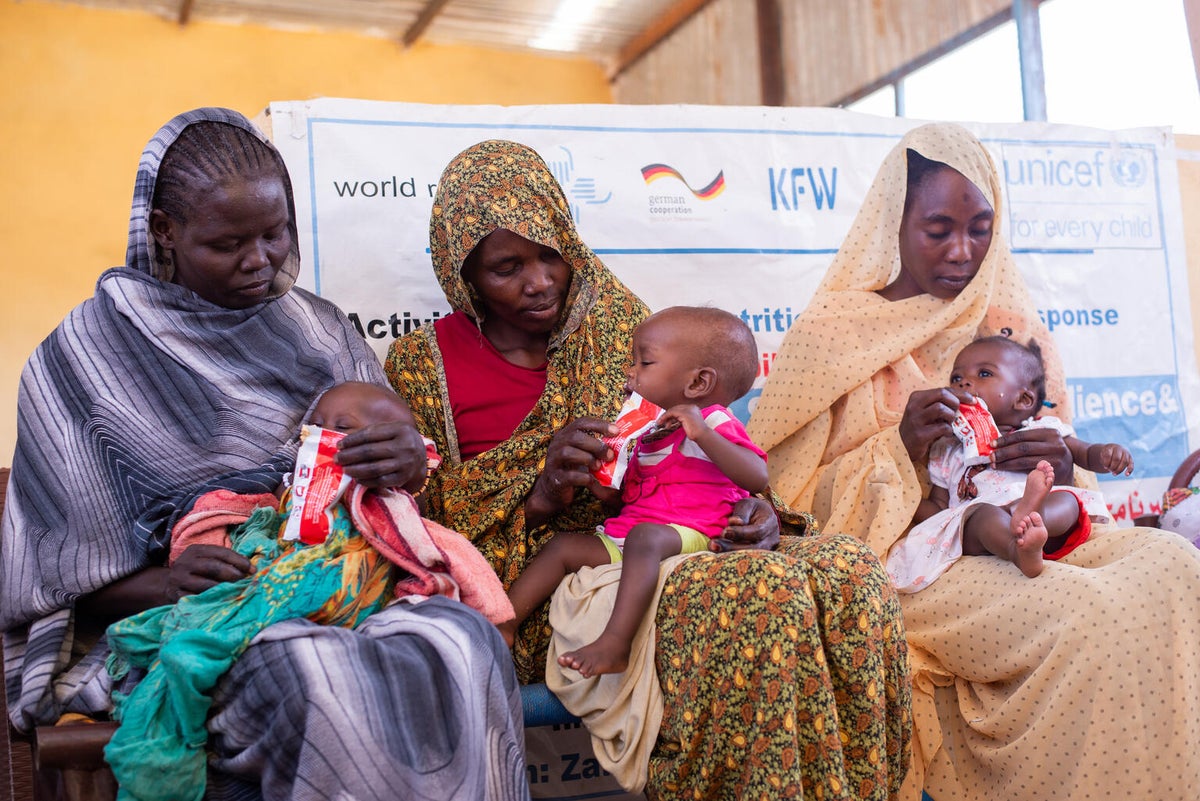
The ongoing conflict has triggered a critical malnutrition crisis, with parts of Sudan, like Zamzam Camp in North Darfur, already grappling with famine. UNICEF estimates that around 2.3 million children under the age of five are at risk of developing severe malnutrition, including 770,000 facing a potentially life-threatening form. This man-made crisis has been worsened by the lack of clean water, sanitation and health care facilities.
Young girls speak out about gender-based violence

Over the past two years, young Sudanese children and women have reported various forms of attacks, such as armed men storming homes and demanding at gunpoint that families surrender their girls, often while violently attacking family members or raping the girls in front of their loved ones.
Since the conflict escalated, there has been a staggering 1000 per cent increase in grave violations against children, including abductions, killing, maiming and sexual violence.
At 16 years old, one young girl found out she was pregnant after being raped by three armed men. Many girls, especially those who became pregnant due to sexual violence, spoke about being rejected by their families and communities due to social stigma. The young girl fled with her sister to a place where she plans to give her baby up for adoption after birth.
"All procedures are in place; the child will be taken immediately after birth and handed over [to another family]. I don’t want them to take the baby from me, but it would be difficult to keep him with me… my father does not know that I got pregnant."
Such devastating stories highlight the alarming rise in gender-based violence (GBV). A UNICEF report reveals 221 reported rape cases against children since the beginning of 2024 – a number likely far higher due to unreported cases. Of these survivors, 66 per cent are girls, including four one-year-olds.
These atrocious acts are not isolated incidents that occur but rather a systemic issue fuelled by prolonged conflict, where GBV is weaponised as a tool of power and control.
For some displaced children who escape conflict zones, the situation often is worse in camps for internally displaced people (IDP). Crowded living conditions and reliance on strangers increases their vulnerability, compounding their trauma.
Children longing for an education
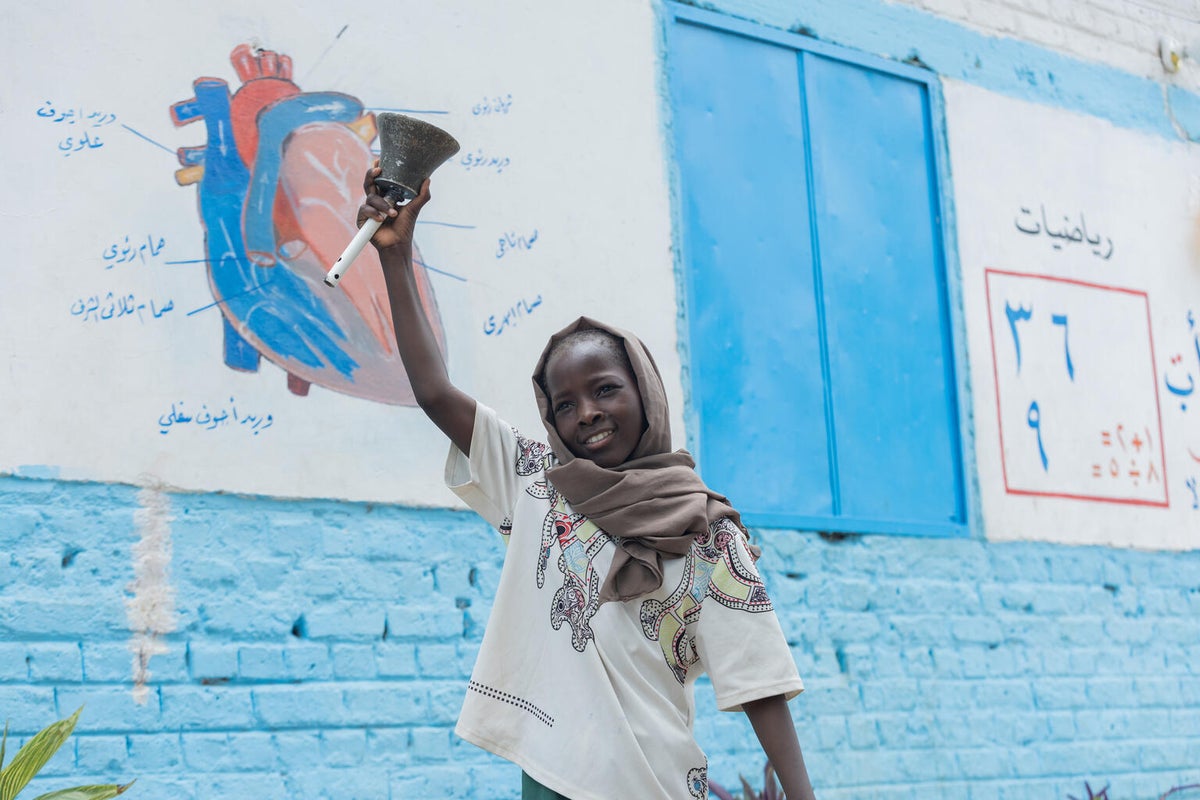
Before violence forced 11-year-old Rabha and her family to flee Khartoum, she and her siblings attended a khalwat, a religious school where she mainly studied the Quran.
Watching other children walk to school in uniform and bags, Rabha wondered why she was never given an opportunity to join them. But the response from her mother was always the same, “I don’t have money.”
Sudan is facing a deepening education crisis, with nearly 90 per cent of children are out of school. Even before the conflict erupted in April, almost 7 million children were already out of school in a country grappling with poverty and instability.
School offers more than lessons in reading, writing, and mathematics. Children also learn social and emotional skills, which in a time of conflict can become a lifeline for coping with violence, loss, and trauma. Schools are also a gateway to other critical services, including nutrition, healthcare, and psychosocial support.
"For me, education is very important. I want to learn. Without education, you won’t be able to understand the world around you when you grow up."
Now, living in a displaced community, Rabha has been given the opportunity to attend a UNICEF-supported safe learning space. Here she has learned, for the first time in her life, to read, write, and count and now has her own notebooks and backpack.
While Rabha dreams of returning home, she fears her education will end if she goes back to Khartoum.
How UNICEF is supporting children in Sudan
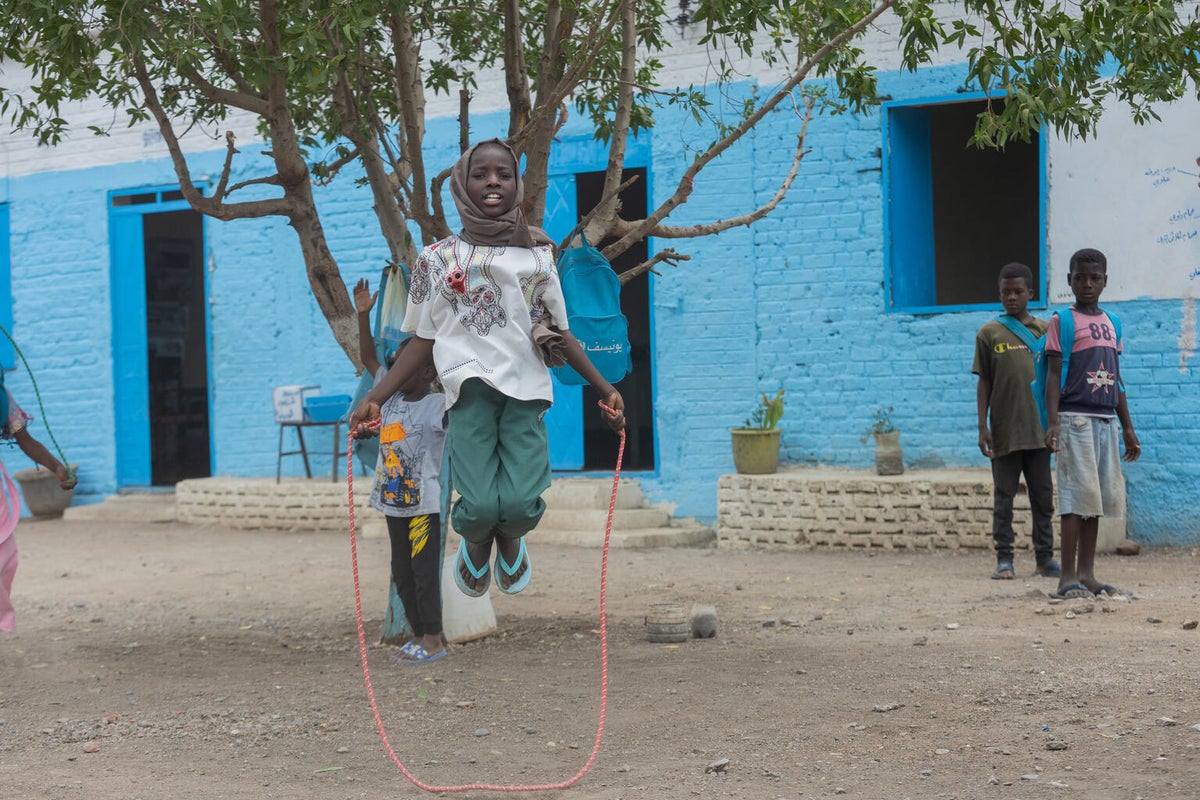
Despite the escalating humanitarian crisis, UNICEF remains on the ground, delivering for every child in need. Since the escalation in the conflict, UNICEF has been working alongside our partners to reach millions of children and their families with safe drinking water, lifesaving healthcare and nutrition, child protection services, education, child-friendly spaces, and psychosocial support.
The price of inaction is far too high
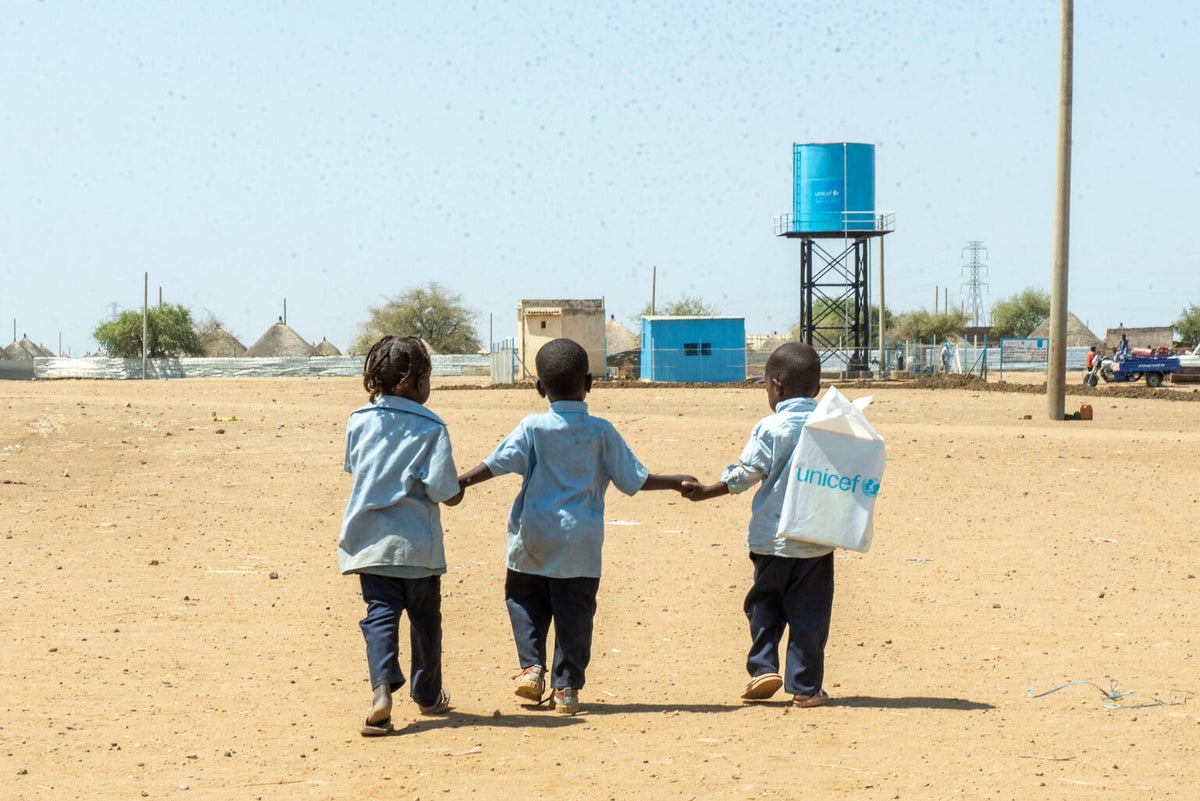
The devastating recent attacks on Zamzam and Abu Shouk camps in North Darfur in April 2025 claimed the lives of 23 children and nine aid workers, leaving access to Zamzam camp completely cut off. This tragedy reflects the severe challenges, immense suffering and loss that so many children and families are facing. Civilians, aid workers and children should never be a target.
With global humanitarian aid facing funding cuts, we cannot afford to turn away. The price of inaction is far too great for Sudan’s children, who urgently need our help, now more than ever.
Children in Emergencies
UNICEF is providing urgent assistance to children. But we can’t do it alone. We need your help today.
Related articles
Stay up-to-date on UNICEF's work in Australia and around the world
















